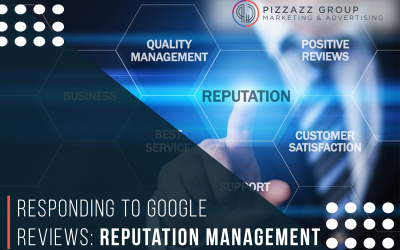
Google posts offer a dynamic platform for businesses to share timely updates, promotions, events, and valuable content directly on Google Search and Google Maps. This comprehensive guide explores the benefits of Google posts, strategies for creating engaging posts, best practices for optimization, and real-world examples to illustrate how businesses can leverage this tool effectively to engage with their audience and drive growth.
Understanding Google Posts
Google posts offer a dynamic platform for businesses to share timely updates, promotions, events, and valuable content directly on Google Search and Google Maps. This comprehensive guide explores the benefits of Google posts, strategies for creating engaging posts, best practices for optimization, and real-world examples to illustrate how businesses can leverage this tool effectively to engage with their audience and drive growth.
Understanding Google Posts

Benefits of Using Google Posts
1. Enhanced Visibility: Posts appear in search results and Google Maps, increasing your business’s visibility to potential customers who are actively searching for relevant keywords.
2. Direct Communication: Share real-time updates, promotions, events, and announcements directly with your audience, keeping them informed and engaged.
3. Increased Click-Through Rates (CTR): Engaging posts can attract clicks from users interested in your offerings, driving traffic to your website or physical location.
4. SEO Benefits: Regularly updating your Business Profile with fresh content can positively impact your local SEO ranking, improving your overall visibility in local search results.
Strategies for Creating Engaging Google Posts
1. Share Timely and Relevant Updates
• Promotions and Offers: Highlight limited-time promotions, discounts, or special offers to incentivize customers to take action.
• Event Announcements: Promote upcoming events, webinars, workshops, or product launches to generate interest and drive attendance.
• Business Updates: Share important business updates, such as changes in operating hours, new product arrivals, or seasonal offerings.
2. Use Compelling Visuals
• High-Quality Images: Include eye-catching images or graphics that grab attention and visually represent your message.
• Videos: Incorporate short videos or animated clips to convey information, demonstrate products, or share customer testimonials.
3. Craft Clear and Engaging Copy
• Concise Messaging: Keep posts concise and to the point, focusing on key details and benefits to capture interest quickly.
• Call-to-Action (CTA): Include a clear CTA to encourage users to take the next step, such as “Shop Now,” “Learn More,” “Call Now,” or “Book Appointment.”
4. Utilize Keywords and Hashtags
• Keyword Optimization: Incorporate relevant keywords related to your business, products, or services to improve visibility in search results.
• Hashtags: Use hashtags sparingly to categorize your posts and make them discoverable by users searching for specific topics or trends.
5. Incorporate Direct Links
• Link to Landing Pages: Direct users to relevant landing pages on your website where they can learn more or complete a desired action, such as making a purchase or signing up for a newsletter.
• Engage with Feedback: Respond to customer reviews promptly and professionally, addressing any concerns and demonstrating your commitment to customer satisfaction.
6. Maintain Consistency
• Regular Updates: Post consistently to keep your audience engaged and informed. Use Google posts to establish a regular cadence of updates, whether weekly, bi-weekly, or monthly.
Best Practices for Optimizing Google Posts
1. Monitor Performance Metrics
• Insights and Analytics: Use the Insights tab in your Google Business Profile dashboard to track post views, clicks, and user interactions.
• Iterative Improvement: Analyze performance data to identify top-performing posts and refine your content strategy based on audience engagement.
2. Respond to User Engagement
• Engage with Comments: Monitor and respond to user comments or questions on your posts promptly. Encourage dialogue and provide helpful responses to enhance customer engagement.
3. Highlight Positive Reviews and Testimonials
• Customer Feedback: Feature positive reviews, testimonials, or user-generated content in your posts to build credibility and trust with potential customers.
4. Promote Seasonal Campaigns and Special Events
• Seasonal Promotions: Align posts with seasonal trends, holidays, or local events to capitalize on seasonal shopping behaviors and boost engagement.
5. Integrate with Other Marketing Channels
• Cross-Promotion: Coordinate Google posts with your overall marketing strategy, including social media campaigns, email newsletters, and website promotions, to amplify your message and reach a broader audience.
Real-World Examples of Effective Google Posts Strategies
1. Local Coffee Shop
• Results: Increased foot traffic and customer engagement. Generated buzz around seasonal promotions and attracted new customers through targeted Google posts.
2. Fitness Studio
3. Online Retailer
Conclusion
Consistency, relevance, and responsiveness are key to maximizing the impact of your Google posts. Regularly review insights, respond to user engagement, and adapt your content strategy based on feedback and performance data. With a strategic approach to Google posts, businesses can effectively connect with their audience, stand out in search results, and achieve sustainable growth in the competitive digital landscape.
For more information on Google Map Marketing, contact Pizzazz Group at customer@pizzazzgroup.com or by calling (614) 350-1681.
Related Google Map Marketing Blogs
The Importance Of Google Reviews For Your Business Profile
Online reviews influence consumers’ purchasing decisions. As part of your Google Business Profile, these reviews not only impact your visibility in local search results but also play a pivotal role in building trust, enhancing credibility, and ultimately driving...
The Power of Google Business Profiles: Introduction
One of the most effective tools for enhancing local visibility and connecting with potential customers is Google Business Profiles, formerly known as Google My Business. This comprehensive guide explores the power of Google Business Profiles, its benefits, best...
Responding to Google Reviews: Best Practices for Reputation Management
Online reviews play a pivotal role in shaping a business's reputation and influencing consumer decisions. Among the various platforms available, Google Reviews hold significant weight due to their visibility in search results and the trust consumers place in Google's...





